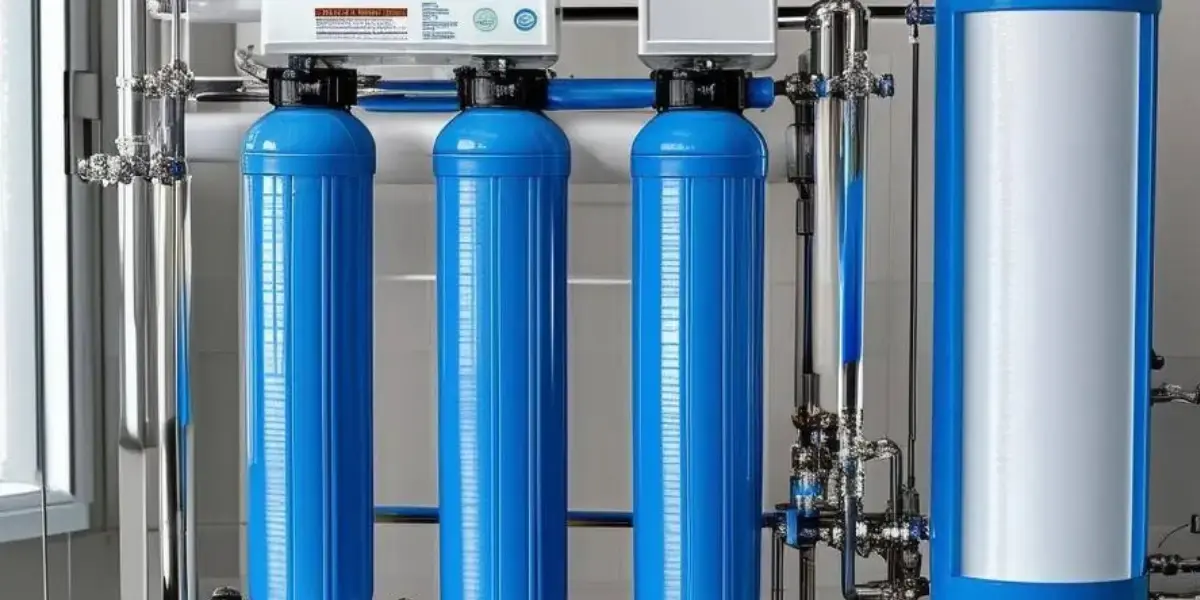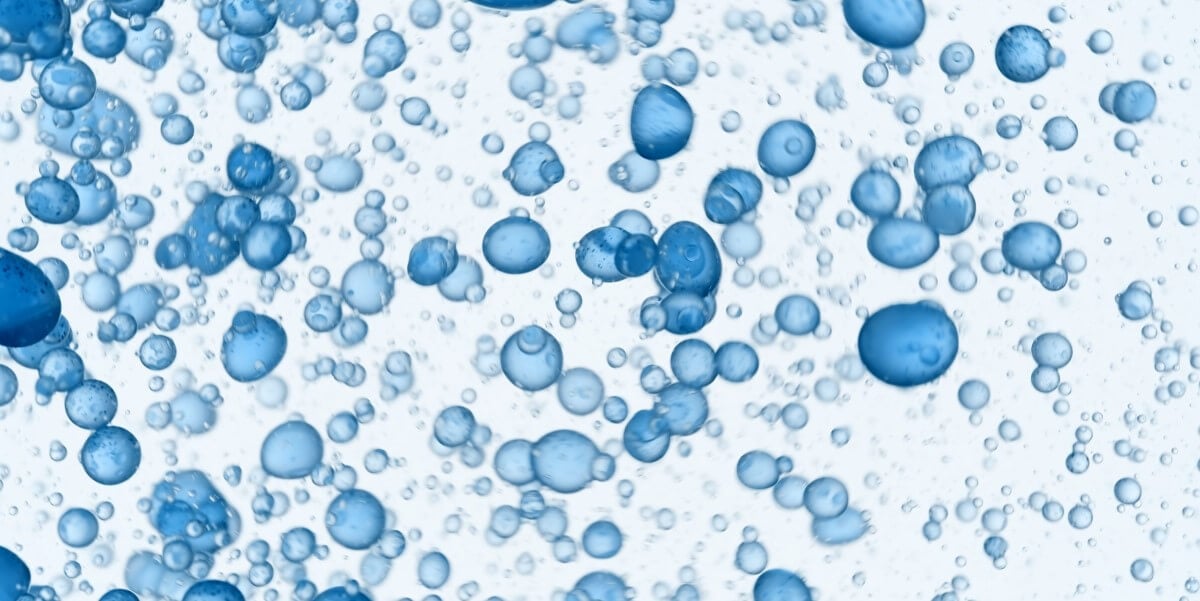4 reasons water treatment is good for business and the environment
In November 2020, water companies in the UK agreed to an ambitious new plan—the world’s first sector-wide commitment to make the water supply net-zero by 2030. They want to do this twenty years before the UK Government’s target becomes legally binding in 2050.
Water treatment and transportation is energy-intensive and result in millions of tonnes of greenhouse gas emissions each year. Still, Water UK estimates that the pledge could save 10 million tonnes of greenhouse gas. The water industry is committed to taking a leadership role in contributing to environmental benefits, but the problem is a shared one. So industries must work together to innovate and thrive whilst tackling climate change through improving ecological practices.
Government projections claim that water in the UK will become scarcer due to increasing pressure being placed on our water sources. Employing a good water treatment system can help to futureproof your business while positively benefitting the environment. Here’s how:
- Lowering total energy consumptions
- Adhering to United Nations Sustainable Development Goal 6
- Improving your business’ ESG
- Reducing operational, regulatory, and reputational risk
1. Lowering total energy consumption
It is crucial for any business that the water treatment measures they implement do more than just comply with standards. Your business needs to see the financial benefits that come from refining your water treatment process. Ensure your water treatment provider shares your same vision and provides quality, sustainable, and ethical solutions. Their investment in innovation will ultimately lead to savings for your business.
Reducing operational costs through reduced energy usage is a great place to look for savings.
Collecting, treating, and discharging wastewater to acceptable permit standards the environment is not affected needs a large amount of energy during the three stages.
- Physical treatment removes the suspended solids and other impurities.
- Biological treatment processes high concentrations of organic matter and nitrogen. Aerobic digestion and anaerobic digestion convert organic matter into carbon dioxide, nitrogen, and methane.
- Sludge thickening and dewatering
The energy efficiency of a wastewater treatment plant is influenced by several factors, including wastewater treatment technology, the size of the plant, and the sewage inflow and effluent quality. If a water company modifies the treatment process after measuring energy efficiency, a plant can reduce its energy cost by up to 30%. The amount of energy consumed is critical to implementing target strategies for energy reduction. Reducing the amount of technology used by employing innovative technology will provide a return on investment (ROI) by minimising further costs in water treatment itself.
2. United Nations Sustainable Development Goal 6
UN Sustainable Development Goal 6 is to ‘Ensure availability and sustainable management of water and sanitation for all’. Specific targets that pertain to UK industry include the following:
Target 6.3: Improve water quality, wastewater treatment and safe reuse
By 2030, improve water quality by reducing pollution, eliminating dumping and minimising release of hazardous chemicals and materials, halving the proportion of untreated wastewater and substantially increasing recycling and safe reuse globally.
Target 6.4: Increase water-use efficiency and ensure freshwater supplies
By 2030, substantially increase water-use efficiency across all sectors and ensure sustainable withdrawals and supply of freshwater to address water scarcity and substantially reduce the number of people suffering from water scarcity.
Target 6.5: Implement integrated water resources management
By 2030, implement integrated water resources management at all levels, including through transboundary cooperation as appropriate.
Implementing an efficient water treatment at your facility will help address these targets and address potential water scarcity. The Government estimates that an extra 4 billion litres of water will be needed per day by 2050. Given that the average person in the UK currently uses 3,000 litres of water a day, this saving is necessary. Industry recycling even a fraction of the amount they use will ensure cheaper water and less operating stress. On a global scale, manufacturing industries use almost 25% of available freshwater. For facilities in water-stressed regions—which could be a future reality for the UK—implementing zero or minimal liquid discharge and recycling water contributes to better water sanitation and by ensuring towns across the country have better potable water.
3. Improve your business’ ESG
Today, water treatment projects are driven by Environmental, Social and Corporate Governance (ESG), which is much more than just a trendy new acronym in today’s economic environment. It is a top priority for corporate shareholders, boards of directors, and customers. Industry benefits from ESG; however, there are now additional benefits of implementing a good water treatment system. There will be a return on investment as the cost of water in many urban areas has increased.
Having a private on-site treatment system on your site eases the strain on the UK’s centralised treatment plants, which enhances the UK’s overall resiliency and water quality. Decentralised systems also help to minimise a company’s “water footprint” by maximising water reuse. Many different industries, from higher education to healthcare to pharmaceuticals, are enhancing their ESG programmes to try and become the most “green” possible.
4. Reduce operational, regulatory, and reputational risk
There are proven benefits of mitigating overall facility risk by implementing a good water treatment system. When deciding upon the right water treatment system for their business, many plant managers focus on short-term financial risk; however, it is also prudent to conduct a cost-benefit analysis of the whole system. This is especially true for water treatment due to risks associated with operation, regulation, and reputation.
In terms of operational risk, it is essential to consider where you would get your water from if the UK’s public sewage system stopped working tomorrow. The most expensive event would be for your facility to have no water. So making sure you can reuse the water you have makes operational sense.
In the UK, there are stringent water treatment processes and strict water regulations. Significant progress has been achieved in the past 30 years to improve the quality of the country’s rivers and seas; however, several challenges remain for the wastewater sector to ensure sufficient treatment. In 2020, water companies admitted to having dumped untreated sewage into English water bodies more than 400,000 times, and there were a series of high-profile fines. Public outcry has led the government to reexamine the issue, and several changes are being made to the environment bill that is currently in parliament. However, it is increasingly likely that regulation will become even more stringent in the future as the House of Lords has now demanded more decisive action.
Ends Report reported that “Southern Water has today been hit with a record £90m fine for repeatedly and deliberately dumping raw sewage into seas along the south coast in breach of its environmental permits.” The fine is huge, but the reputational damage could prove even more expensive.
Today’s environmentally aware consumers increasingly link purchase decisions with a company’s ESG impact and environmental credentials. In addition to a moral duty, in purely business terms, companies must avoid negative press. Identifying and preventing leakages of raw sewage is an essential step towards risk mitigation, and correct water stewardship practices can easily yield rewards.
Conclusion
There is no perfect time for your business to spend money, but now is the right time to refine your water treatment process. Water legislation is likely to get more stringent, and the public demands that businesses treat the environment responsibly. Implementing an efficient water treatment process will be one of the most positive actions your business can take for both the environment and your bottom line.
Topics: Water Treatment & Hygiene

Written by Jon Greaves
Jon has progressively worked through operational roles, account management, technical management, and senior management roles over the last 16 years within one of the group companies before moving into the role of Water and Air Managing Director. Jon has experience across multiple sectors of water and air compliance, including district energy networks; data centres; healthcare; food and beverage and facilities management. Jon acted as a corresponding steering committee member on CIBSE CP1 – Heat Networks Code of Practice for the UK released in 2020.



